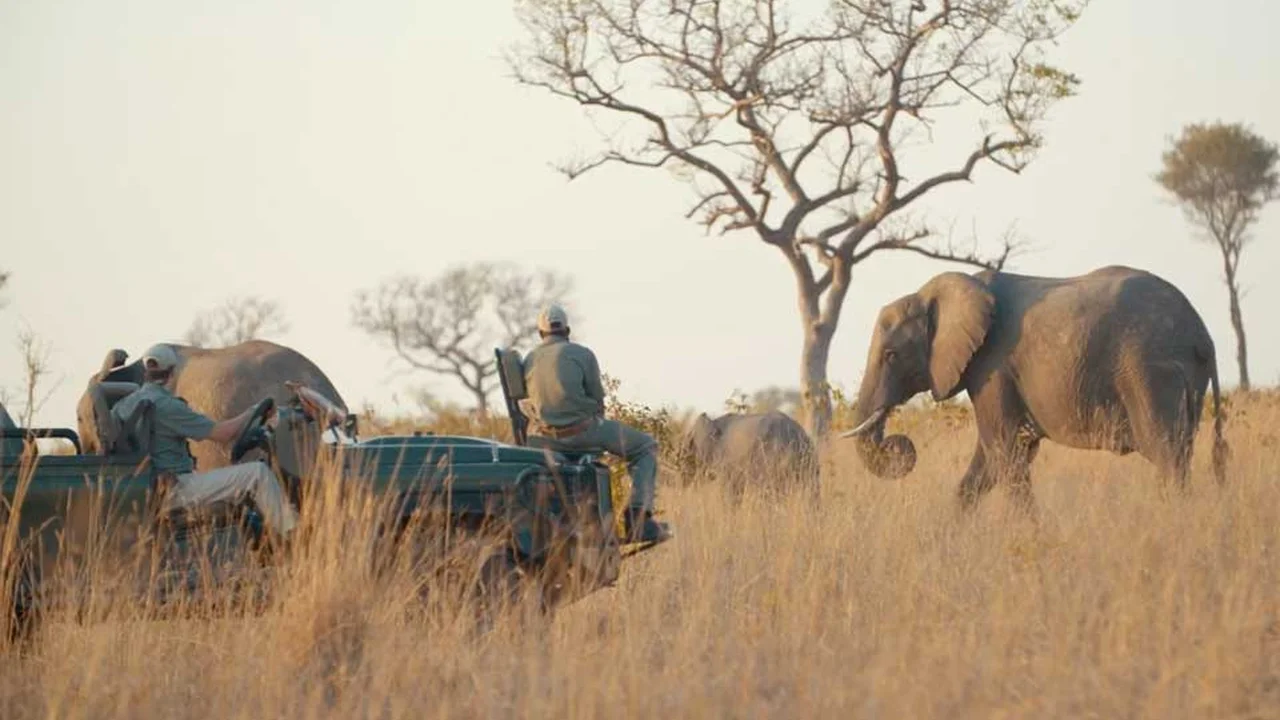Responsible Wildlife Tourism
Discover responsible wildlife tourism and how to protect animals in their natural habitats. Discover ethical tour operators and conservation projects. Enjoy wildlife encounters without harming animals.

Understanding Ethical Wildlife Encounters and Conservation
Hey there, fellow travelers! So, you're keen on seeing some amazing animals in the wild? Awesome! But let's talk about doing it right. Responsible wildlife tourism is all about making sure our adventures don't harm the creatures we're so eager to see. It's about respecting their space, supporting conservation efforts, and contributing positively to local communities. Think of it as being a guest in their home – you wouldn't trash someone's house, right? Same goes for the animals' habitat.
Choosing Ethical Tour Operators for Wildlife Viewing
Alright, so how do you pick a tour operator that's actually ethical? First, do your research! Look for companies that are certified by reputable organizations, like the Global Sustainable Tourism Council (GSTC). Check their websites for their conservation policies. Do they contribute to local conservation projects? Do they have a code of conduct for interacting with wildlife? A good operator will prioritize the well-being of the animals over getting that perfect Instagram shot. They'll also educate you about the animals and their environment. Red flags? Operators that allow you to feed, touch, or get too close to the animals. Remember, a wild animal is not a pet!
Specific Examples of Ethical Tour Operators
Butterfield & Robinson: Luxury meets sustainability
If you're looking for high-end experiences with a conscience, Butterfield & Robinson offers incredible wildlife tours that prioritize conservation. They partner with local communities and conservation organizations to ensure their trips have a positive impact. Price range: Expect to spend upwards of $10,000 per person for their curated experiences.
G Adventures: Community-focused adventures
For a more budget-friendly option, G Adventures offers a range of tours that focus on community development and responsible tourism. They work with local guides and businesses, and their trips often include visits to conservation projects. Price range: Typically between $1,500 and $5,000 per person.
Intrepid Travel: Small group, big impact
Intrepid Travel is another great option for responsible wildlife tourism. They focus on small group tours and work with local leaders to promote sustainable practices. Price range: Similar to G Adventures, ranging from $1,500 to $5,000 per person.
Understanding Animal Welfare and Wildlife Conservation
Let's dive a little deeper into animal welfare. It's not just about avoiding harm; it's about ensuring animals have a good quality of life. This means they have access to food, water, shelter, and medical care. It also means they're free from unnecessary stress and suffering. When it comes to wildlife conservation, we're talking about protecting entire species and their habitats. This involves things like anti-poaching patrols, habitat restoration, and community education programs.
Avoiding Harmful Practices in Wildlife Tourism
Okay, so what are some specific things to avoid? Riding elephants is a big no-no. These animals are often subjected to brutal training methods, and the weight of tourists can cause them serious injuries. Similarly, avoid visiting tiger temples or other places where animals are kept in captivity for entertainment purposes. These animals are often mistreated and live in deplorable conditions. Also, be wary of photo opportunities with wild animals. These animals are often drugged or declawed to make them docile.
Responsible Wildlife Viewing Guidelines
So, you've chosen an ethical tour operator, and you're ready to see some animals. What now? Here are a few guidelines to keep in mind: Maintain a safe distance from the animals. Use binoculars or a zoom lens to get a closer look. Avoid making loud noises or sudden movements. Don't feed the animals. Human food can be harmful to their health, and it can also disrupt their natural foraging behavior. Respect the animals' space and don't try to touch them. Remember, you're a guest in their home.
Specific Products and Gear for Responsible Wildlife Observation
Bushnell NatureView Binoculars: See further, tread lightly
These binoculars are perfect for getting a closer look at wildlife without disturbing them. They offer excellent clarity and magnification, and they're made with eco-friendly materials. Price: Around $100 - $150. Use Case: Bird watching, safari tours, general wildlife viewing. Comparison: Compared to more expensive brands like Leica or Swarovski, Bushnell offers excellent value for the price. However, the image quality isn't quite as crisp, and they may not perform as well in low-light conditions.
Sony RX10 IV Camera: Zoom without intrusion
This camera has a powerful zoom lens that allows you to capture stunning photos of wildlife from a safe distance. It also has excellent image stabilization, which is essential for capturing sharp photos in the field. Price: Around $1,800 - $2,000. Use Case: Wildlife photography, bird photography, capturing distant subjects. Comparison: While not as versatile as a DSLR with interchangeable lenses, the RX10 IV offers a convenient all-in-one solution with impressive zoom capabilities. It's also lighter and more compact than a DSLR setup.
REI Co-op Sahara Shade Hat: Sun protection for you, peace for the animals
Protect yourself from the sun without using harmful chemicals that could disturb wildlife. This hat is lightweight, breathable, and provides excellent sun protection. Price: Around $30 - $40. Use Case: Hiking, wildlife viewing, general outdoor activities. Comparison: Compared to other sun hats, the REI Co-op Sahara Shade Hat is known for its comfortable fit and excellent ventilation. It's also made with recycled materials, making it a more sustainable choice.
Lifestraw Go Water Filter Bottle: Hydrate responsibly
Avoid buying single-use plastic water bottles by bringing your own water filter bottle. This bottle filters out bacteria and parasites, so you can safely drink water from streams and rivers. Price: Around $30 - $40. Use Case: Hiking, camping, traveling in areas with unreliable water sources. Comparison: Compared to other water filter bottles, the Lifestraw Go is known for its ease of use and effective filtration. However, it does require some suction to draw water through the filter.
Supporting Local Communities Through Tourism
Beyond protecting animals, responsible wildlife tourism also involves supporting local communities. When you choose to stay in locally owned hotels, eat at local restaurants, and hire local guides, you're directly contributing to the local economy. You're also helping to create jobs and opportunities for local people. Avoid patronizing businesses that exploit local workers or harm the environment. Look for businesses that are committed to fair wages, safe working conditions, and sustainable practices.
Examples of Community-Based Tourism Initiatives
Visiting a Karen Village in Thailand
Many tour operators offer visits to Karen villages in northern Thailand, where you can learn about their culture and traditions. Make sure the tour operator is committed to fair trade practices and that the money you spend goes directly to the community.
Staying at a Community-Run Ecolodge in Costa Rica
Costa Rica is a leader in ecotourism, and there are many community-run ecolodges that offer sustainable accommodation and activities. These lodges are often located in remote areas and provide opportunities to learn about local culture and conservation efforts.
The Future of Wildlife Tourism
The future of wildlife tourism depends on our ability to travel responsibly and sustainably. By choosing ethical tour operators, supporting local communities, and respecting the animals and their habitats, we can ensure that future generations will have the opportunity to experience the wonders of the natural world. It's a big responsibility, but it's also an incredibly rewarding one. So, let's get out there and explore, but let's do it right!
:max_bytes(150000):strip_icc()/277019-baked-pork-chops-with-cream-of-mushroom-soup-DDMFS-beauty-4x3-BG-7505-5762b731cf30447d9cbbbbbf387beafa.jpg)






